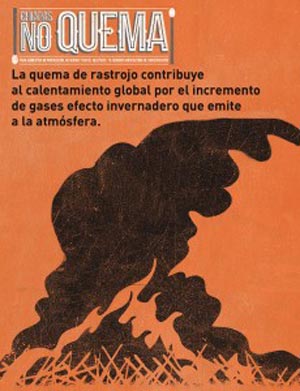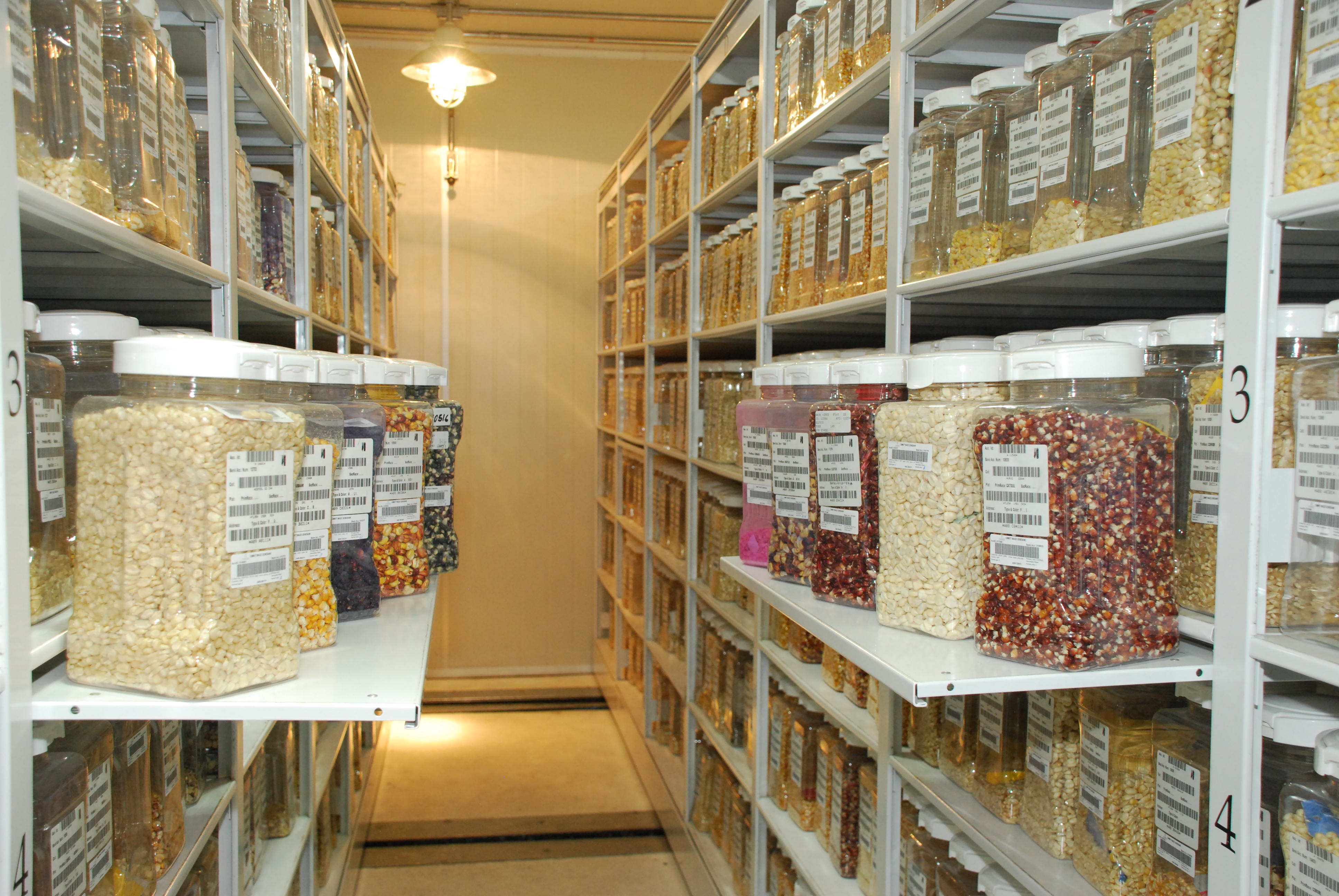“To increase my production, I don’t burn residues; I use them. I practice conservation agriculture.” This slogan was promoted by CIMMYT’s Global Conservation Agriculture Program (GCAP) from March to May 2015 through a communications campaign in the state of Chiapas, Mexico. The campaign aimed to inform farmers and agronomists of the devastating effects of residue burning and its potential risks. It also focused on topics such as the benefits of residue retention, sustainable alternatives to conventional practices, and how burning contributes to global warming.
According to Mexico’s National Forestry Commission, 40% of forest fires start in farm plots, due mainly to residue burning and burning to clear land for farming. Forest fires release large amounts of carbon dioxide and other pollutants that contribute to global warming and climate change. Global warming has already affected several agricultural areas in Mexico. For example, in 2014, there was a severe drought in Chiapas that lasted 45 days and caused all agricultural production to be lost, reinforcing the importance of MasAgro’s mission to promote environmentally friendly agronomic practices.
MasAgro was able to interact with its users through its mobile information service, MasAgro Movil, to carry out a scoping exercise. The exercise helped MasAgro identify farmers’ problems concerning residue and agricultural burning. With input from several farmers, MasAgro crafted key messages directed at solving issues such as reducing weed incidence, fertilizer use and soil erosion and conserving soil moisture.

The campaign also dealt with topics such as the perceived benefits of burning versus sustainable alternatives that generate long-term benefits; the benefits of retaining residues in farm plots; residue burning and its contribution to global warming, and technical tips for handling residues. Finally, testimonials were gathered from farmers who have already experienced the benefits of retaining residues in their plots.
These key messages were transmitted through MasAgro’s communication outlets, such as using the hashtag #ChiapasNoQuema and MasAgro Movil in social media. In addition, four farmer interviews were broadcast on the regional radio station of the National Commission for the Development of Indigenous Peoples, and a series of articles were published in MasAgro’s online magazine EnlACe.
The campaign reached farmers in all corners of the state of Chiapas thanks to the strong support of many institutions, organizations, regional offices and service providers. Through the No Burning in Chiapas campaign, CIMMYT spearheaded the drive to promote sustainable practices while providing relevant information and technical assistance.

 Climate adaptation and mitigation
Climate adaptation and mitigation 
